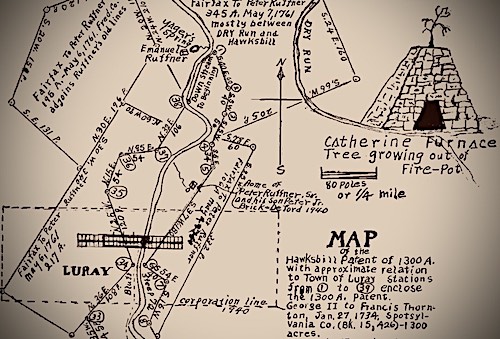
By Jack “Alex” White III, columnist ~ “Small towns, big potential”
It often seems as if we only talk about history when we are arguing about it. Nowhere is this more true than local history, where landmarks provoke protests and names beget lawsuits.
Wherever you fall on those issues, I am most concerned about the rich rich local history that many people (of ALL ages) sometimes forget. This history belongs to all of us; emphasizing it can help to unite us despite different political views, economic situations, or ethnic heritage.
The latter can sometimes be the most pronounced, and there are many local stories that should give us pride to bridge that divide. An example can be glimpsed in the bravery of the several United States Colored Troops from Page County, who risked life and limb to flee their captivity and take up arms for America (at the risk of unspeakable retribution if they were ever captured).
I am especially drawn to the saga of Bethany Veney, a former slave whose autobiography, Aunt Betty’s Story, remains an extraordinarily valuable source on life in the antebellum south. It holds lessons for today as the resident of Page (then part of Shenandoah County) recounts the kindness she received from local people of all colors—including many local church leaders.
The Andrew Jackson School stands as a living monument to those roots. Built in 1924 to serve area Black students, the school reflected excellence in its athletics, commitment to community, and academic standards that even saw one student’s work recognized by the U.S. Congress.
The school also exemplifies what can happen when we give history its due (as Living Legacy restores the building as a space for the same community resilience that it still embodies).
Just imagine a world in which those contributions are discussed in our homes, taught in our classrooms, and commemorated through monuments, murals, readings, and our respect…
The above stories are only the “tip of the iceberg.” Page County has been home to top athletes, the world’s very first bluegrass festival, and even one of the earliest modern fantasy novels.
In the 19th century alone, Page County residents played pioneering roles as critics of slavery, advocates of public education, and early opponents of levying war against the United States.
That kind of history can bring us together in pride as Page County residents, Valley Virginians, and—most importantly—Americans. I can think of nothing more needed at a time when it is easy to feel as if people have little in common. Shared history is a possible antidote to that.
We can start this recognition by elevating unsung local history in ourselves and in our homes. We can finish with monuments, events, and even school curricula focused on local stories.
Jack “Alex” White III is the Executive Director of the Rural Leadership Initiative and the District 1 Representative on the Page County Economic Development Authority — where he was reported to have been “Virginia’s youngest government official” at the time of his appointment.
Alex is a lifelong native of Page County, graduate of Luray High School and enrolled at Harvard University.
•••
PREVIOUS COLUMNS
The real issues in our schools
Plenty of gifts if you buy local this Christmas
Thriving, not just surviving in Page County
Keep fighting for what’s right
Consider your neighbors before you panic buy
Investing in our kids makes fiscal sense
Addiction – progress, challenges and resources
No greater love than sacrifice
Time to stand up for ‘the little guy’
Local government matters (now more than ever)
Small towns, big potential: What can we do?



Your link regarding “public education” reveals William Henry Ruffner. A big wheel in the American Colonization Society.
“The American Colonization Society (ACS) was formed in 1817 to send free African-Americans to Africa as an alternative to emancipation in the United States. In 1822, the society established on the west coast of Africa.”
He also supported Biblical arguments in favor of slavery.
Aware and glad you are too! He was also a slaveholder; history is complicated, and that’s why people are in error when they let historical evils obscure positive contributions. We must be able to take a nuanced view.
Since education, black slavery, segregation and separate but equal, have become intertwined here, why is it that no blacks have ever won the Abel Prize in mathematics?